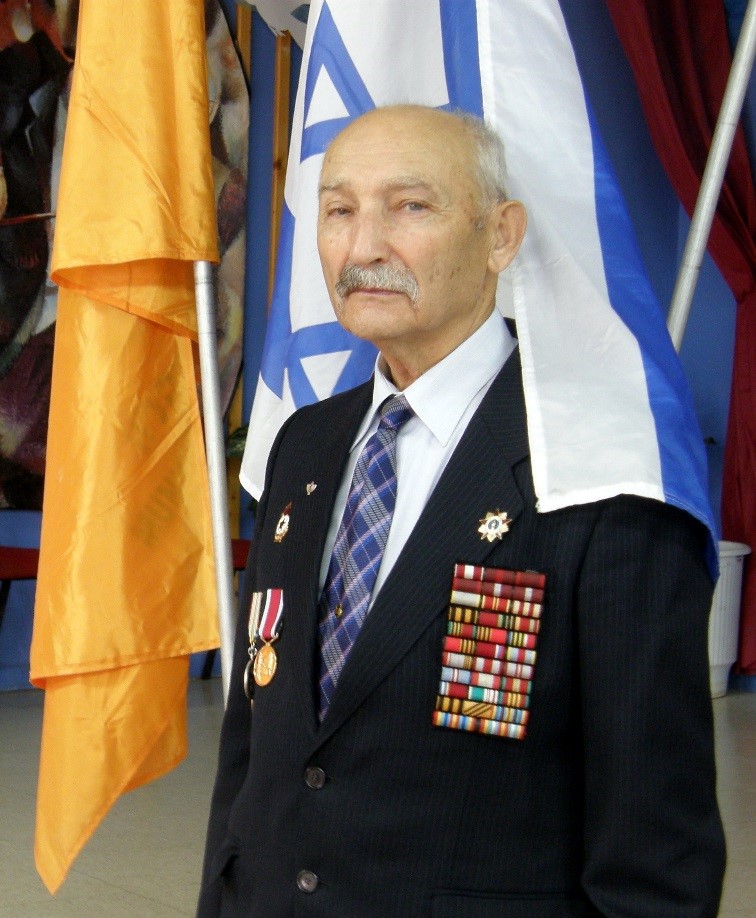Mikhail Kano was born in 1923 in Vitebsk, Belorussia. A year later, his family moved to Moscow, where Mikhail graduated from a seven-year school and entered the so-called Second Special School for Artillery. Mikhail would later recall that, as a boy, he was interested in global politics (e.g. following the course of the Spanish Civil War) and dreamed of a military career1. His cousin Lev Shuster, whom Mikhail regarded as his role model, was a combat pilot who was killed in the Chinese Civil War in 1938. Mikhail's father Matus, a veteran of World War I, approved of his son's choice. In 1941, Mikhail was supposed to graduate from that school and enter the 3rd Leningrad Artillery School – but then, in June that year, the Soviet-German war broke out, and his entire class at the 3rd LAS was evacuated eastward.
In December 1941, Lieutenant Kano was attached to the 24th Separate Battalion of Guards Mortars (these guards mortars are more commonly known by their popular nickname Katiushas). Two months later, he was transferred to the 43rd Separate Battalion of Guards Mortars of the 22nd Army (from 1943 on, it became the 1st Guards Tank Corps). Kano would fight with this battalion until the end of the war, rising from the rank of lieutenant to that of captain, and advancing from the position of platoon commander to that of battalion commander. His combat service began with the defense of Moscow in the winter of 1941-42, and continued on the Northwestern Front in the area of Staraia Russa (northwest Russia). Kano recalls that the primary targets of his battalion were enemy tank columns. In April 1943, he was seriously wounded, and, after being discharged from hospital, he was given staff duty in his battalion. In late 1943-1944, he fought in Belorussia, and then in Poland, before entering Germany in the spring of 1945. He finished the war in Rostock, northern Germany.
Mikhail Kano received four military orders – the order of the Red Star, the Order of the Red Banner, and two Orders of the Patriotic War, 1st and2nd class, respectively – as well as a number of medals. The citations for the awards emphasize his outstanding commanding abilities.
Mikhail Kano's father, Matus, volunteered for the People's Militia and fought at the defense of Moscow. Later, he was attached to the 2nd Shock Army, which was tasked with defending Leningrad (present-day St. Petersburg). In spring 1942, he was seriously wounded and evacuated to the rear. In Mikhail's opinion, that injury saved his father's life by preventing him from being present at the Volkhov Front (southeast of Leningrad), where, in June 1942, the 2nd Shock Army was virtually annihilated by the Germans.2
After the war, Mikhail Kano continued his military service. In 1952, Lieutenant Colonel Kano graduated from the Dzerzhinskii Artillery Academy in Moscow, and, being a "cosmopolitan" (a common euphemism for Jews in those days), he was assigned to a backwater post on the Turkish border. Only in 1959 was he promoted to the rank of colonel. In 1975, Kano retired from the Soviet army.
In 1998, Mikhail Kano immigrated to Israel and settled in Ashkelon, later moving to Tel-Aviv. He is an active member of Israeli veterans' associations. His younger grandchild served in the Israeli Defense Forces and was wounded in one of Israel's wars.







